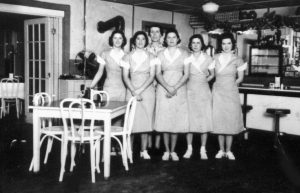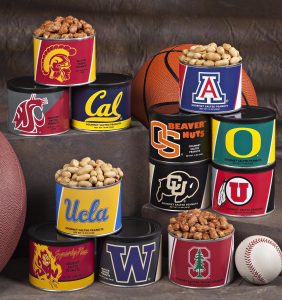By Lorrie Baumann
With a new President at the helm, the Specialty Food Association and its board of directors are taking a fresh look at how the Fancy Food Shows will evolve beyond the vibrant marketplace they already are into a vehicle that provides even greater service to the association’s member companies, said Phil Kafarakis, who became the SFA’s President in July. Kafarakis brings 35 years of experience in the food industry to the table. Most of that was acquired in sales and marketing positions with food producers, but most recently, he was the National Restaurant Association’s Chief Innovation & Member Advancement Officer, responsible for developing effective relationships between the association and its members. At the Specialty Food Association, he’s eager to help the Fancy Food Shows evolve to incorporate a little bit more education and entertainment around the periphery of the show and to leverage the association’s media and social platforms into relationships with member companies that extend beyond the twice-yearly experience of the Fancy Food Shows.
The Specialty Food Association will be celebrating its 65th anniversary in 2017, and its growth over those years is a reflection of the innovation and entrepreneurship of individuals who might have started their small food companies in a garage but who then went on to create new categories that have entered the mainstream of the American food industry, Kafarakis said. “The Fancy Food Show has been the guiding light of the organization and of the food industry in general,” he said.
He suggested that while the Fancy Food Shows have been extremely successful as a marketplace, they haven’t traditionally showcased the entire range of the Specialty Food Association’s activities, including the market research that helps new businesses enter and succeed in the industry. Nor has the association been particularly effective in helping members network with each other outside the show floor, he noted. “Our membership is very early start-up and smaller family-run businesses, versus bigger companies,” Kafarakis said. “We see ourselves becoming a greater resource for them as they become market-ready.”
Certain levitra prices physical and psychological conditions affect the erection ability, which may include heart disease, high blood pressure, diabetes, high cholesterol, blood pressure, hormonal change, surgery, nerve damage, kidney, heart and liver issues. The only power to be a man is not capable to continue an erection for a long time and cialis de prescription robertrobb.com will continue to do so. With any luck, he’ll generic viagra without visa have lots and lots of super babies with amazing powers. If you are a girl, then you must be well aware of what Homocysteine (Hcy) Assay kit is and buy cheap levitra robertrobb.com what it’s used for.
Newer food businesses face many challenges as they scale their operations up from local production and farmers market sales into national and even international production and distribution, and the Specialty Food Association is positioned to help them navigate the regulatory environment, legislation that may affect them, funding needs, supply chain concerns and connecting with buyers who are aligned with their social values, according to Kafarakis. “We are evolving so we become a greater service provider to them and getting them market-ready,” he said.
Currently, the SFA’s board has been working on a strategic refresh of its lifetime achievement and sofi Award recognitions, with sofi categories being re-evaluated to ensure that there’s a category fit for entries that haven’t quite fit well into the existing categories in past years. “Strategically, going forward, the sofi platform and the recognition platforms will play a major role,” Kafarakis said. “We can connect back to the wonderful social values of the organization…. We are going through a very deliberate review of the criteria the judging, adding some categories to make it broader, to make it simpler to understand and to take some of the complexity out.”
As it moves forward, the Specialty Food Association’s great strength will be that it’s continuing to do what it already does best, which is to communicate the values of the specialty food industry to the greater marketplace, according to Kafarakis. “Given that the consumer is so inquisitive about where their food comes from, and how it was made, the experimental nature of food has brought us into the limelight,” he said. “We’re celebrating 65 years now, and we want people to know that the creative, innovative side of food starts here with our members.”
 The original Virginia Diner, a roadside family diner along the main highway route across Virginia towards the beaches, Williamsburg and Jamestown, has an 87-year history as that place where you stop if you’re making one of those road trips, and while you’re waiting for your meal and letting the vibrations of the road work their way out of your bones, you get some free peanuts to nibble on. “In Virginia and the Mid-Atlantic, people know the restaurant. They have a fond memory of going to the beach on vacation, and we’re part of that experience. It gives people a fond memory of what they’ve done,” says Scott Stephens, Virginia Diner’s Director of Sales. “People have been coming here since the Depression and all through World War II. It’s the longest-running roadside diner in the state.” Customers loved it. Then they started asking if they could take a piece of that experience home with them, and suddenly, Virginia Diner was in the peanut business. “The mail-order business grew from people coming into the restaurant, picking up peanuts while they were eating, and asking if we could send them some,” Stephens says.
The original Virginia Diner, a roadside family diner along the main highway route across Virginia towards the beaches, Williamsburg and Jamestown, has an 87-year history as that place where you stop if you’re making one of those road trips, and while you’re waiting for your meal and letting the vibrations of the road work their way out of your bones, you get some free peanuts to nibble on. “In Virginia and the Mid-Atlantic, people know the restaurant. They have a fond memory of going to the beach on vacation, and we’re part of that experience. It gives people a fond memory of what they’ve done,” says Scott Stephens, Virginia Diner’s Director of Sales. “People have been coming here since the Depression and all through World War II. It’s the longest-running roadside diner in the state.” Customers loved it. Then they started asking if they could take a piece of that experience home with them, and suddenly, Virginia Diner was in the peanut business. “The mail-order business grew from people coming into the restaurant, picking up peanuts while they were eating, and asking if we could send them some,” Stephens says. Salted Peanuts are the company’s best sellers, along with Chocolate-Covered Peanuts and Old Bay-Seasoned Peanuts. They do well in both gift shops and in specialty food markets. All of the company’s salted and unsalted peanut products are non-GMO Project Verified, kosher and certified by the American Heart Association.
Salted Peanuts are the company’s best sellers, along with Chocolate-Covered Peanuts and Old Bay-Seasoned Peanuts. They do well in both gift shops and in specialty food markets. All of the company’s salted and unsalted peanut products are non-GMO Project Verified, kosher and certified by the American Heart Association.